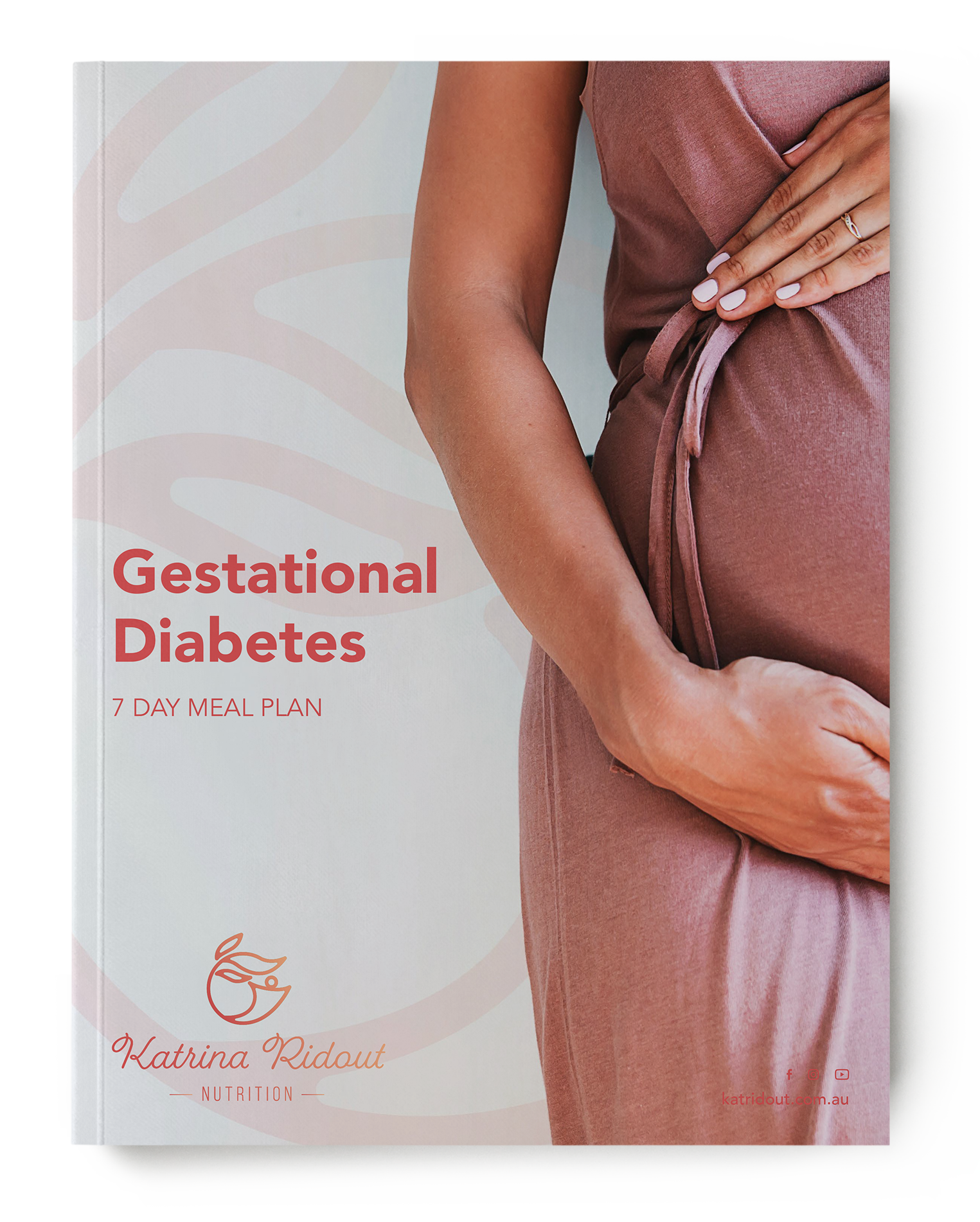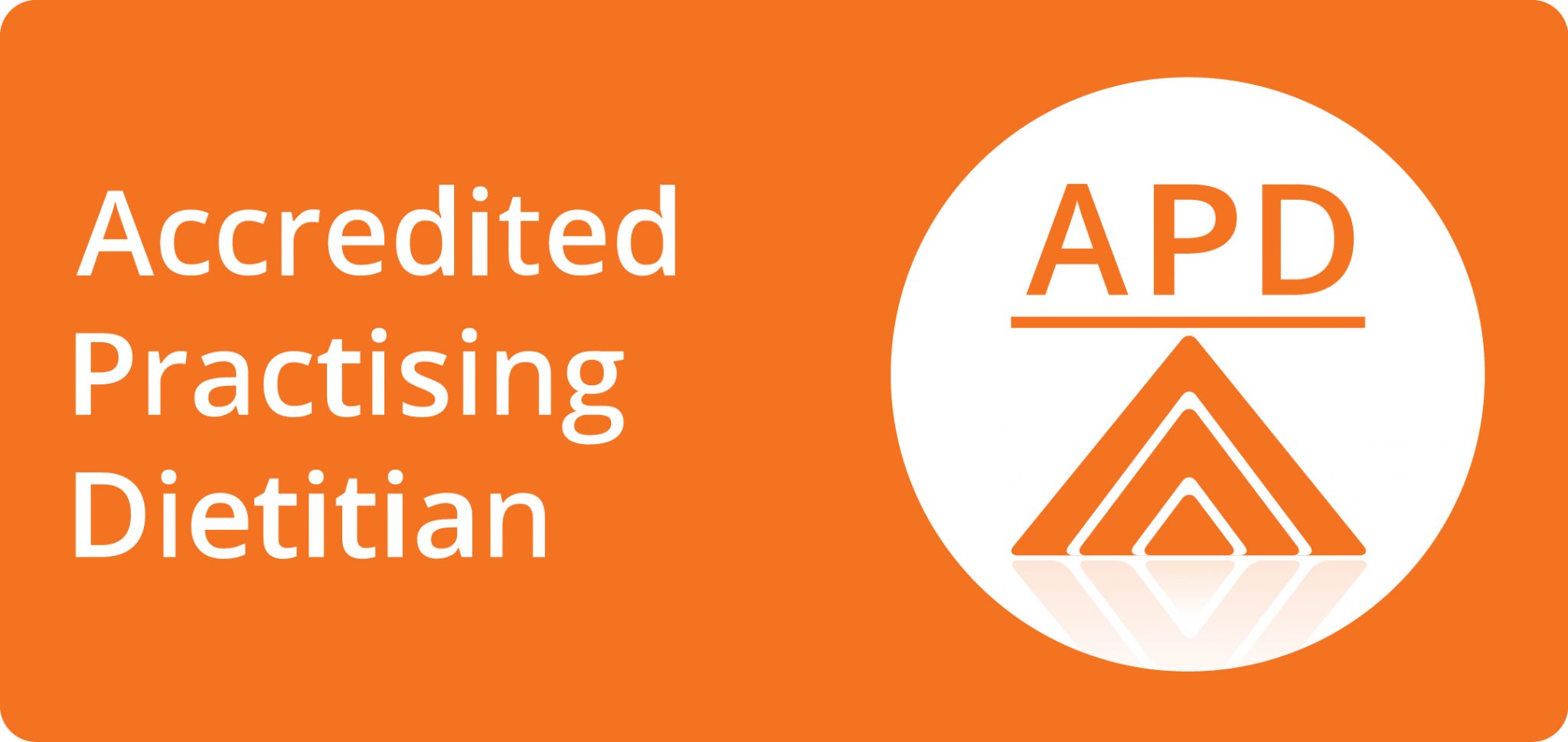If you are diagnosed with gestational diabetes during pregnancy, don’t panic, we’re here to help.
It is not uncommon for women to develop Gestational Diabetes Mellitus (GDM) during their pregnancy. In fact, 1 in 7 Australian women are diagnosed with this condition, so you are not alone. Katrina Ridout has over 15 years of experience assisting pregnant women and helping them through GDM, and can help you.
Talk to a Dietitian Today

Gestational Diabetes 7 Day Meal Plan
Download our guide to get more information on some of the key things you need to know to nourish your body optimally throughout your pregnancy journey with gestational diabetes.
Why do women get gestational diabetes?

Metabolic and hormonal changes in the body during pregnancy can make insulin work less effectively than normal (insulin resistance) which in turn causes high blood glucose (sugar) levels. In addition, during pregnancy, there is a shortage of insulin production as the pregnancy progresses and therefore there is not enough insulin to counteract this decrease in insulin sensitivity.
Although gestational diabetes usually goes away after giving birth, if not managed well through diet, exercise and medication, it can lead to many serious complications for you and your baby and can increase both your chances of getting type 2 diabetes later on in life.
How does gestational diabetes affect my baby?
Women with gestational diabetes are more likely to have a large for gestational age (LGA) baby, require an emergency caesarean section and go into pre-term labour . If not well managed, GDM can also cause your baby to have long-term metabolic problems with insulin and blood sugar levels, and can increase their risk of macrosomia, respiratory distress, jaundice, hypertension, shoulder dystocia, hypoglycaemia, hypocalcaemia, future obesity, and renal disease.
How is gestational diabetes diagnosed?
All pregnant women should get tested for gestational diabetes between the 24th to 28th week of pregnancy. This is done through a series of blood tests and an oral glucose tolerance test (OGTT – sweet drink) to see how your body processes the glucose. See your medical practitioner or dietitian if you need more information about this.
About Kat Ridout

Katrina is an accredited practicing dietitian and nutritionist and certified fertility and prenatal dietitian who is eager to share her knowledge and zeal for health and nutrition with mothers to be and mums alike.
She first earned her Bachelor of Business Management in Marketing at the University of Queensland and then applied her passion for diet and nutrition as she earned her Bachelor of Applied Science in Nutrition and Dietetics (Hons) and Graduate Certificate in Research (prenatal nutrition) at Queensland University of Technology.
Kat is here to help motivate, guide, and provide sound nutrition advice to mums to be, pregnant women, and mums who have already had their bub during this pivotal journey.
Click here to see how she can help you to have the best pregnancy experience you possibly can and to help optimise your little one’s growth and development!

Start the conversation from the comfort of your own home. Fill out the form to get started!
How can Katrina Ridout Nutrition help with gestational diabetes?
In conjunction with your team of health professionals, Kat will provide you with the education, skills, and tools to best manage your GDM. Through effective evidence-based nutrition, you can better control your blood sugar levels and minimise the risk of any adverse pregnancy outcomes for you and your baby.
Contact Kat and start the conversation from the comfort of your own home. Fill out the form above to get started, or use the contact details below!